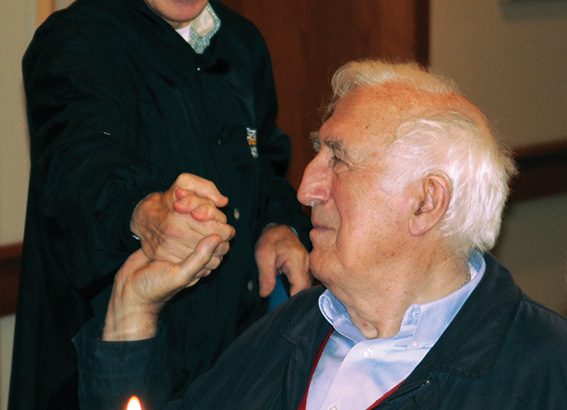I was listening the other day to the radio and an Irish conductor was talking about being asked by Elmer Bernstein to work on the music for Martin Scorsese’s film The Age of Innocence. Things were not sounding as they should and the conductor was trying to listen intently to isolate the problem. Behind him there was a rumble of conversation until he turned and told the group of people to shush. Later that day a woman approached him and asked did he know what he had done, he had told Martin Scorsese to be quiet! This, she explained, was seriously inappropriate and could lead to him being sacked.
Fortunately it appears that at least on this occasion Martin Scorsese had less of an inflated notion of himself than his personal assistant did. Rather than sacking the conductor he went and apologised for the disruption and invited him out for dinner. When I heard that, I found myself wondering why we are inclined to lionise certain individuals, to treat them as if they are due a level of respect and adulation far beyond the rest of us.
That question has been given added significance with the revelation that Jean Vanier, the founder of L’Arche, had been involved in exploitative and abusive sexual relationships with women for decades before his death. This was a man referred to by so many of us as a “living saint” and a “spiritual giant”. He had founded communities where people with disabilities could live positive and meaningful lives. He wrote about the encounter with God amidst vulnerability – and yet he exploited the vulnerability of women to whom he was supposed to be giving spiritual guidance.
Like hundreds of thousands around the world I looked up to Jean Vanier. I heard him speak on a number of occasions. I believed that he was someone in whom the Holy Spirit was powerfully present. I cannot deny the good that he did but I am shaken and shocked to discover that he was capable of such appalling behaviour towards women. The L’Arche communities are devastated by the discovery of this dark side to their founder. They should not be tarred with the same brush.
Why did we lionise him? How did we believe that he could be so utterly without fault? Could we not have rejoiced in the good that we saw without presuming Vanier to be a saint? This is not a call for us to be cynical but rather to acknowledge that we are all fragile, complex, capable of darkness.
Mary Ward who founded the Institute of the Blessed Virgin Mary known here in Ireland as the Loreto Sisters, called upon the women in her company to “Be such as you appear and appear such as you are”. It was a call to integrity. This is something I now see was not the case with Jean Vanier. He allowed us all to believe in a version of himself which he knew was untrue. I cannot see myself ever picking up one of his books again to read. The truth which seemed to shine out from his writing has been sullied.
Again and again in the Catholic Church we have faced the scandal of realising that some people are not who they seem and their actions have betrayed their calling. I’m left feeling that there is something to be learned here about humility and integrity. I think we all need to be aware of and honest about our own weaknesses. It really heightens for me the need for the sacrament of Reconciliation – that it is not enough to quietly give the nod to my own weaknesses, I actually need to speak those out, share them with another person and ask for healing and forgiveness.
We also need to be realistic about those we look up to. Let’s not rush to turn people into saints or put them on pedestals. Like us they are fragile and susceptible to sin, sometimes shockingly so.


 Bairbre Cahill
Bairbre Cahill
